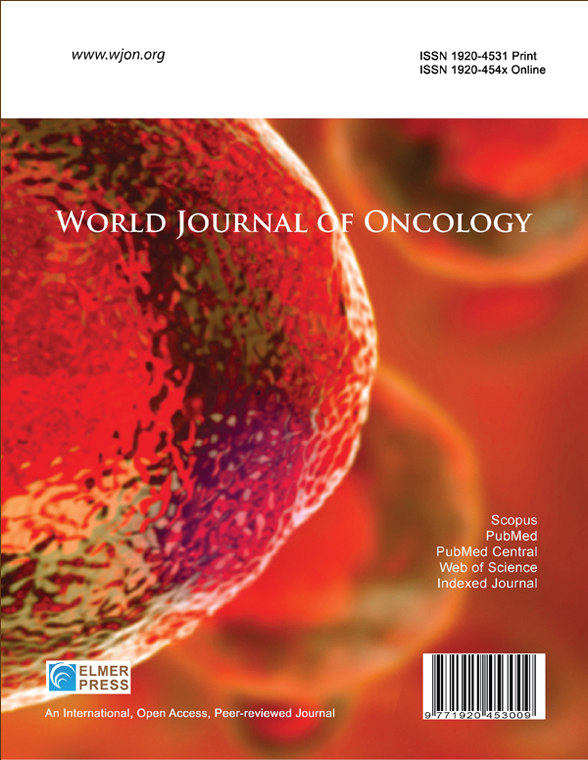High-Fructose Corn Syrup on Inflammation and Cancer
DOI:
https://doi.org/10.14740/wjon2652Keywords:
High-Fructose Corn Syrup, HFCS, Inflammation, CancerAbstract
High-fructose corn syrup (HFCS), a widely used sweetener in processed foods and beverages since the 1970s, has garnered significant attention for its potential role in promoting metabolic disorders and cancer. Unlike glucose, fructose is primarily metabolized in the gut, where it stimulates de novo lipogenesis, promotes insulin resistance, and contributes to hepatic steatosis. These metabolic disturbances are strongly associated with chronic low-grade inflammation, a well-established risk factor for tumor development and progression. Emerging evidence suggests that HFCS contributes to a pro-inflammatory environment through upregulation of macrophage activation, increased cytokine production, and disruption of gut microbiota homeostasis, thereby impairing intestinal barrier integrity and promoting systemic inflammation. Animal studies have shown that HFCS consumption induces greater insulin resistance and adipose tissue inflammation compared to high-fat diets. Recent research highlights the direct influence of HFCS on cancer biology, beyond its indirect effects through obesity and metabolic disorders. Preclinical models demonstrate that HFCS intake accelerates tumor growth in colorectal, breast, and melanoma tumor models, independent of obesity. Mechanistically, fructose metabolism supports cancer cell proliferation via enhanced glycolysis, lipogenesis, and nucleotide synthesis through the pentose phosphate pathway. Fructose also suppresses necroptosis in hypoxic conditions and may promote metastasis via the generation of lipid mediators like lysophosphatidylcholine (LPC) and the upregulation of fructose transporters such as glucose transporter 5 (GLUT5). Diets rich in HFCS have been shown to activate the insulin/insulin-like growth factor 1 (IGF-1) signaling pathway, leading to enhanced tumor growth and reduced apoptosis. Epidemiological data link high fructose consumption with increased risk for in colorectal, pancreatic, and breast cancers in addition to poorer prognosis in these patients. However, findings remain heterogeneous, likely due to variability in fructose sources, dietary patterns, and host factors. Given the widespread dietary exposure to HFCS, understanding its metabolic, inflammatory, and oncogenic effects is critical. This review synthesizes current evidence linking HFCS to cancer pathogenesis and underscores the urgent need for further research into fructose-specific mechanisms and their relevance to cancer prevention and therapeutic strategies.

Published
Issue
Section
License
Copyright (c) 2025 The authors

This work is licensed under a Creative Commons Attribution-NonCommercial 4.0 International License.









